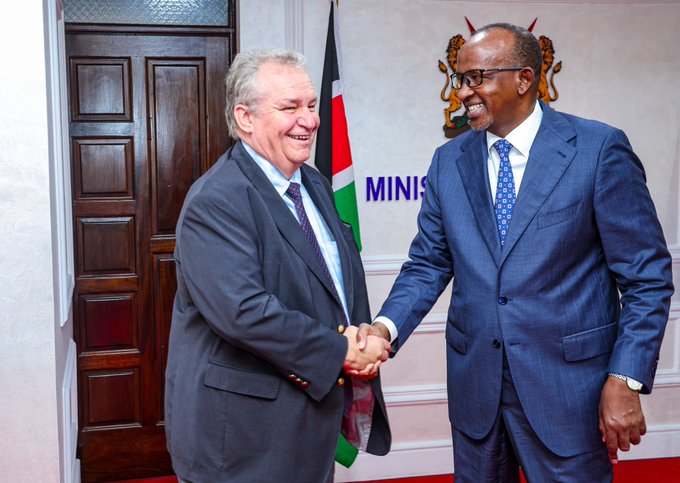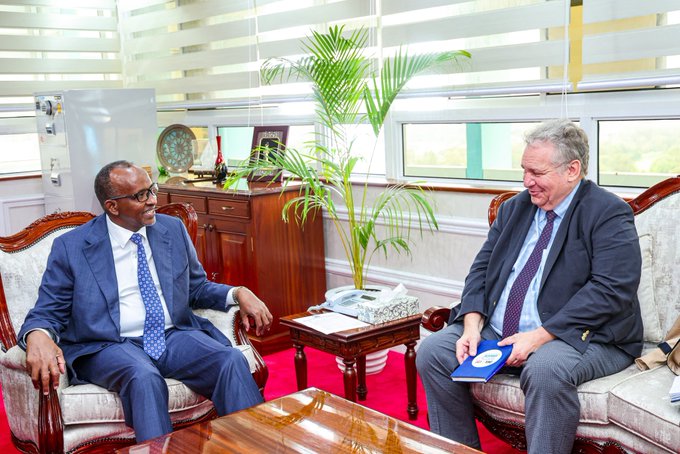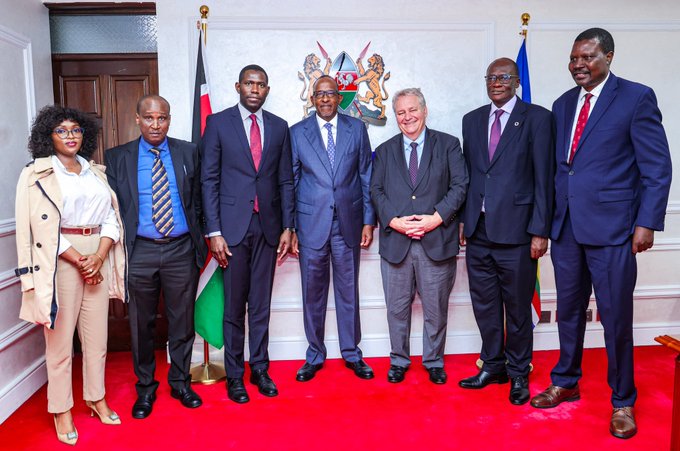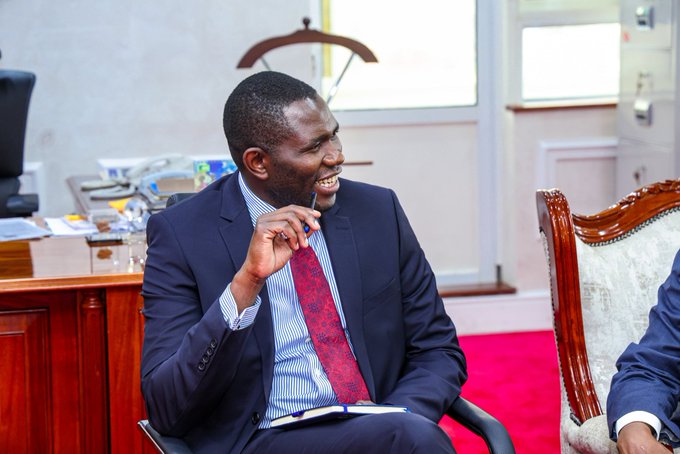NAIROBI, Kenya – Kenya and Belgium have deepened their cooperation in healthcare through two pivotal projects aimed at enhancing medical waste management and bio-manufacturing training.
This move comes following a bilateral meeting between Kenya’s Cabinet Secretary for Health, Aden Duale, and Belgium’s Ambassador to Kenya, Peter Maddens, to review the progress of these initiatives.
A key focus of the discussions was the successful implementation of the Medical Waste Microwave Project, supported by the Belgian Government.
The initiative, which aims to improve healthcare waste management, reduce the risk of infections, and protect the environment, saw Phase 1 completed in June 2021.
The project has benefited several key hospitals, including Kenyatta National Hospital, Moi Teaching and Referral Hospital, and regional medical facilities in counties such as Kakamega, Kisumu, Mombasa, Nakuru, Embu, Nyeri, Machakos, and Kisii.
Phase 2 of the project is now underway, expanding its reach to 15 additional counties.
Duale expressed gratitude for Belgium’s continued support in strengthening Kenya’s healthcare systems and emphasized the critical role these projects play in advancing the country’s Universal Health Coverage (UHC) goals.
The expansion of the medical waste management project is expected to significantly improve public health by reducing environmental hazards associated with improper disposal of healthcare waste.
Additionally, the meeting addressed the progress of the KEMRI-Unizima Bio-Manufacturing Training Hub, another Belgian-funded initiative.
𝐊𝐞𝐧𝐲𝐚 𝐚𝐧𝐝 𝐁𝐞𝐥𝐠𝐢𝐮𝐦 𝐃𝐞𝐞𝐩𝐞𝐧 𝐂𝐨𝐥𝐥𝐚𝐛𝐨𝐫𝐚𝐭𝐢𝐨𝐧 𝐨𝐧 𝐌𝐞𝐝𝐢𝐜𝐚𝐥 𝐖𝐚𝐬𝐭𝐞 𝐌𝐚𝐧𝐚𝐠𝐞𝐦𝐞𝐧𝐭 𝐚𝐧𝐝 𝐁𝐢𝐨-𝐌𝐚𝐧𝐮𝐟𝐚𝐜𝐭𝐮𝐫𝐢𝐧𝐠 𝐓𝐫𝐚𝐢𝐧𝐢𝐧𝐠Cabinet Secretary for Health, @HonAdenDuale today held a bilateral meeting with the Ambassador
The hub aims to develop local expertise in bio-manufacturing and biopharmaceuticals, helping Kenya build its capacity to produce essential medicines.
Discussions focused on finalizing operational details, including the signing of a Memorandum of Understanding (MoU), securing additional financing, and facilitating staff training in Belgium.
This initiative aligns with Kenya’s broader strategy to develop a local biopharmaceutical manufacturing industry, supporting the country’s healthcare infrastructure and fostering economic growth.
The collaboration between Kenya and Belgium is expected to yield long-term benefits in improving healthcare waste management, advancing bio-manufacturing capabilities, and ensuring Kenya’s health systems are robust and sustainable.
Both governments remain committed to furthering these projects and enhancing their partnership for the betterment of healthcare in Kenya.







